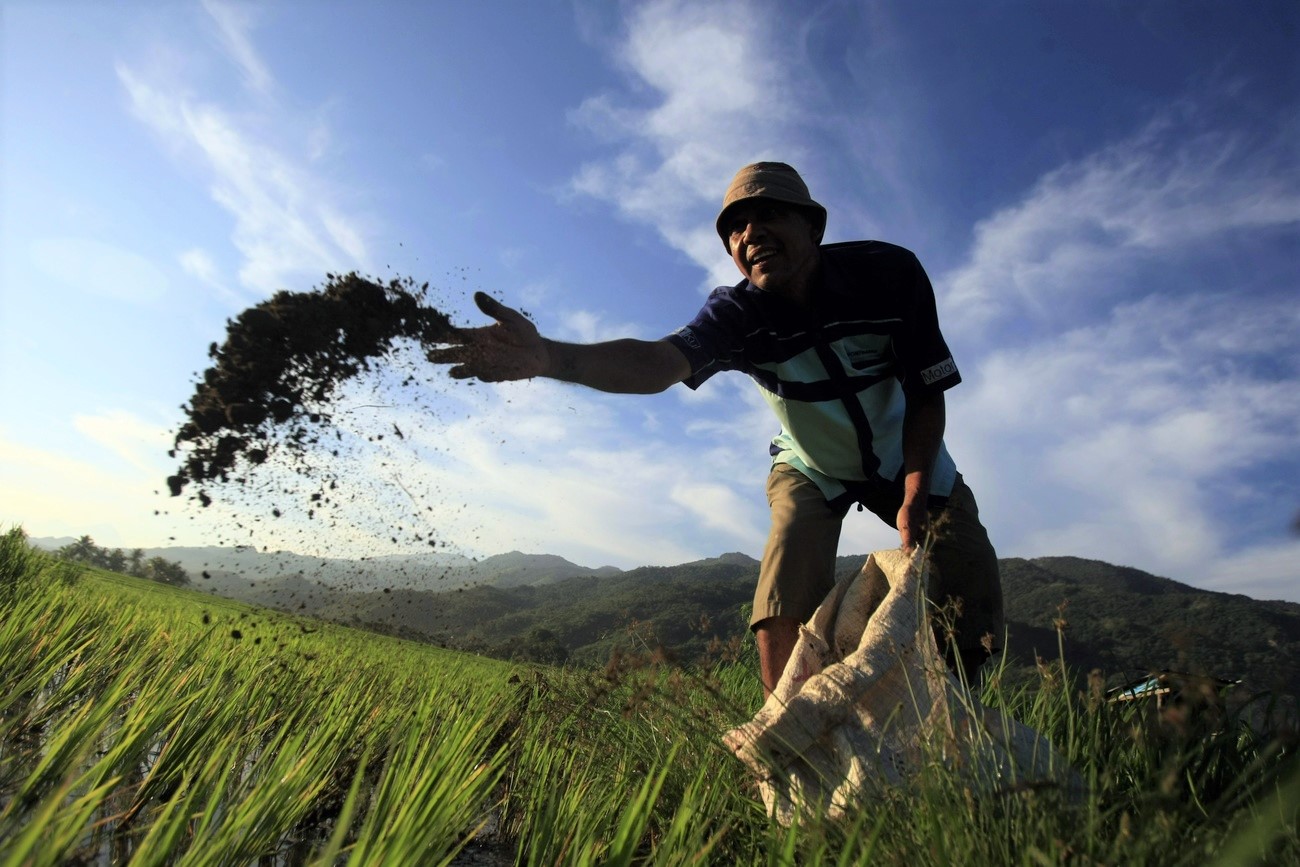
Small island states ‘lead the way’ on climate action
The developing world is showing leadership in terms of long-term climate goals but needs more than words to sustain ambition, says Cassie Flynn, climate advisor at the United Nations Development Programme (UNDP).
Five years ago in Paris, lengthy negotiations and a rare consensus brought 196 countries to adopt the Paris agreement. The goal was ambitious: to deliver a global response to the threat of climate change by keeping the global temperature rise this century well below 2 degrees Celsius above pre-industrial levels. The means was Nationally Determined Contributions (NDCs) – each country’s efforts to reduce national emissions and adapt to the impacts of climate change.

More
‘Forgotten’ greenhouse gases pose risk to Paris Agreement
Though the first round of NDCs was a mad dash, the Paris Agreement set the mechanism for countries to re-submit their goals, increase their ambition over time and do better. UNDP’s Climate PromiseExternal link, the biggest worldwide support programme to assist 115 developing countries scale up their pledges, gives us an opportunity to identify three prominent trends, shaping how the world is designing future climate policies.
What is striking is the prominent legacy of leadership of developing countries since 2015. Despite their size and negligible contributions to greenhouse gas emissions, small island developing states (SIDS) around the world are leading the way on climate action and climate advocacy.
If there is one thing the Covid-19 pandemic showed the world, in painful yet sharp clarity, is that in times of trouble, the most vulnerable – people and countries – are the hardest hit. Yet when it comes to the bigger hurdle still facing humanity – climate change – that might make Covid-19 look like a dress rehearsal, it is the same vulnerable ones that are taking the lead in steering this planetary ship to safety.
Developing countries are the front-runners of climate action: more than eighty percent plan to increase mitigation ambition and ninety seven percent plan to increase adaptation ambition. Likewise, all least developed countries (LDCs), aim higher and plan to increase adaptation ambition. Bhutan and Suriname are the first in the world to have achieved their net zero targets and become carbon negative. Both countries show us that it is possible to move out of the climate crisis: they absorb more CO2 from the atmosphere than they emit thanks to their extensive forest coverage and carbon sinks.
Many of them, through the Covid-19 crisis, have realised the opportunities to leverage NDC enhancement processes to push for a greener and more sustainable development pathway, making the Covid-19 crisis a catalytic moment for transformation. Costa Rica and Thailand are just a two examples. They have incorporated NDC-related recommendations into their COVID-19 recovery plans and models. The governments are seeking fiscal incentive options for climate action that could also advance economic recovery. This is the true embodiment of “recover better”.
Finally, developing countries are combining climate, gender and youth policies to drive change. Climate ambition has become the basis for a social inclusive approach. Developing countries recognise rightly that women and youth can trigger high ambition, accountability and climate justice. At the five-year mark, the majority of the Climate Promise countries include gender-responsive activities in their work plans. Same goes for youth-related priorities: while in 2015 only 40% of first generation NDCs included direct references to children or youth, 75% of Climate promise countries are now prioritizing youth.
Only last week, while giving the ‘state of the planet address’, the UN Secretary General spared no words as he warned from the “suicidal” war humanity is waging on nature, a war that will lead to “climate catastrophe”. So where are the developed countries in all this? Although some long-term strategies of high emitters are bold and aligned with the goals of the Paris agreement, their timeframes are decades into the future.
The two main needs from developing countries to pursue their ambitions are finance and technical assistance. Article 6 of the Paris Agreement aims to promote international cooperation through carbon markets. For example, countries can buy carbon credits against infrastructure development such as with the recent Internationally Transferred Mitigation Outcomes (ITMOs) between Ghana and Switzerland. They system might not be perfect, but it injects capital where it is most needed. Switzerland can play an important role in influencing global capital markets in aligning finance with climate action. Developed countries need to look at the leadership legacy of the developing world, see the example set by the most vulnerable, and start increasing their ambition, right here, right now.
The views expressed in this article are solely those of the author, and do not necessarily reflect the views of swissinfo.ch.
Cassie Flynn is a strategic advisor on climate change at the United Nations Development Programme (UNDP). She is head of the UNDP Climate Promise programme, which supports 115 countries under the Paris Climate Agreement. She was the former advisor to the prime minister of Fiji. A graduate of Yale, she was named by Onalytica as the 13th most influential person on climate change in 2017.
Opinion series
swissinfo.ch publishes op-ed articles by contributors writing on a wide range of topics – Swiss issues or those that impact Switzerland. The selection of articles presents a diversity of opinions designed to enrich the debate on the issues discussed. If you would like to submit an idea for an opinion piece, please e-mail english@swissinfo.ch

More
Swiss-Peruvian climate deal pioneers international cooperation

In compliance with the JTI standards
More: SWI swissinfo.ch certified by the Journalism Trust Initiative




























You can find an overview of ongoing debates with our journalists here . Please join us!
If you want to start a conversation about a topic raised in this article or want to report factual errors, email us at english@swissinfo.ch.